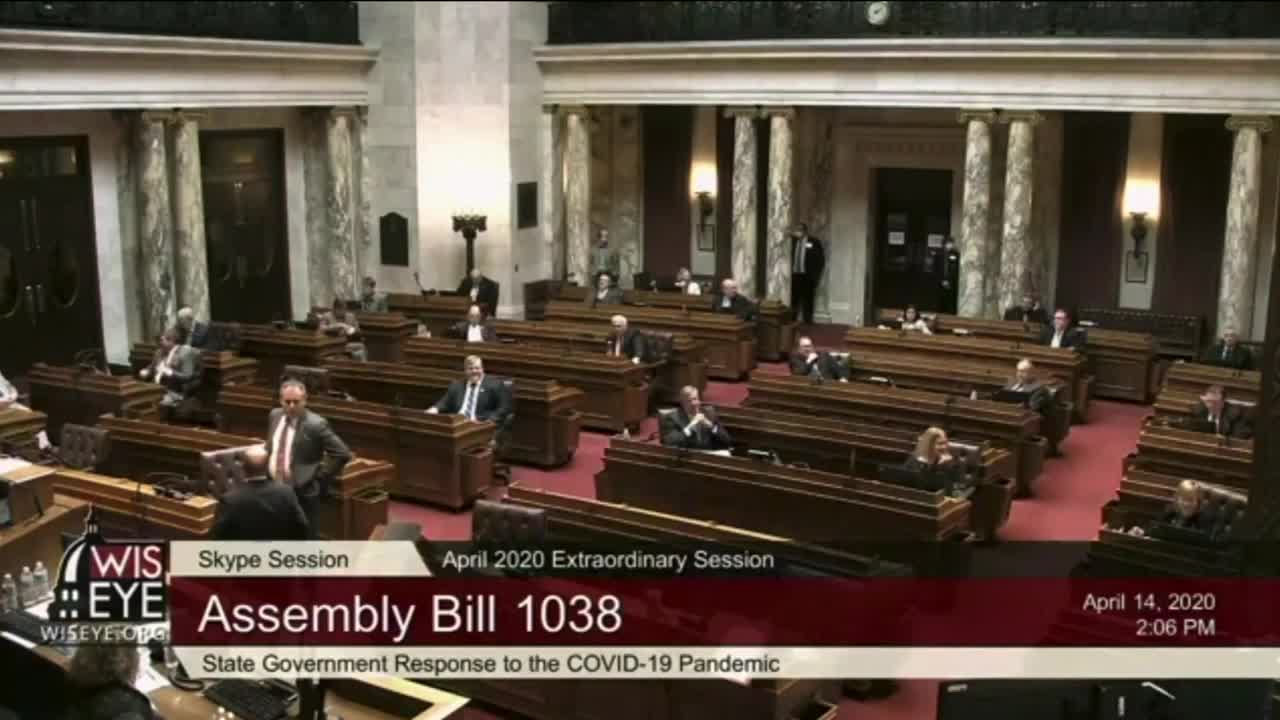Wisconsin lawmakers passed a coronavirus response bill Tuesday that could bring relief for the unemployed and allows the state to accept hundreds of millions of federal dollars.
The Wisconsin Assembly passed the bill Tuesday afternoon with nearly unanimous support. The Wisconsin Senate is expected to take a vote Wednesday.
This was the first time Assembly representatives have been able to participate virtually due to the pandemic. A majority of the representatives decided to participate online in their homes or offices.
- Coronavirus in Wisconsin: Live Updates From Across the State
- We're Open: These Restaurants Are Still Offering Carryout And Delivery
- FULL COVERAGE: Coronavirus News And Resources You Can Use
The extraordinary session in the Wisconsin Assembly gave new meaning to the word extraordinary. More than half of the representatives attended virtually, while dozens of others sat at a distance inside the state capitol building.
"We're here today to do our jobs because so many people across the state have been doing theirs," said Assembly Speaker Robin Vos.
Vos touted bipartisan support on issues pertaining to the bill, including the suspension of a one-week waiting period for unemployment benefits until February of 2021. Wisconsin's Department of Workforce Development said 375,000 people have applied for unemployment since mid-March.
The coronavirus response bill also allows the state to accept hundreds of millions of federal dollars for healthcare programs on top of $2 billion Wisconsin is set to receive from the Federal CARES Act.
"We're ensuring testing is no cost to the person tested," Vos said.
Democratic leaders in the Assembly said they hoped more would be included in the bill, such as mail-in voting requirements for future elections and more funding for state schools.
"I know we don't have a ton of money, but there's funds out there," said Oshkosh representative Gordon Hintz.
Both democrats and republicans agree they will have to reconvene at a later date to address the state's troubled economy further.
The Wisconsin Senate is expected to take a vote on this bill Wednesday in a similar fashion through virtual means. Gov. Evers has to sign the bill into law by Friday for the state to receive federal funding.


